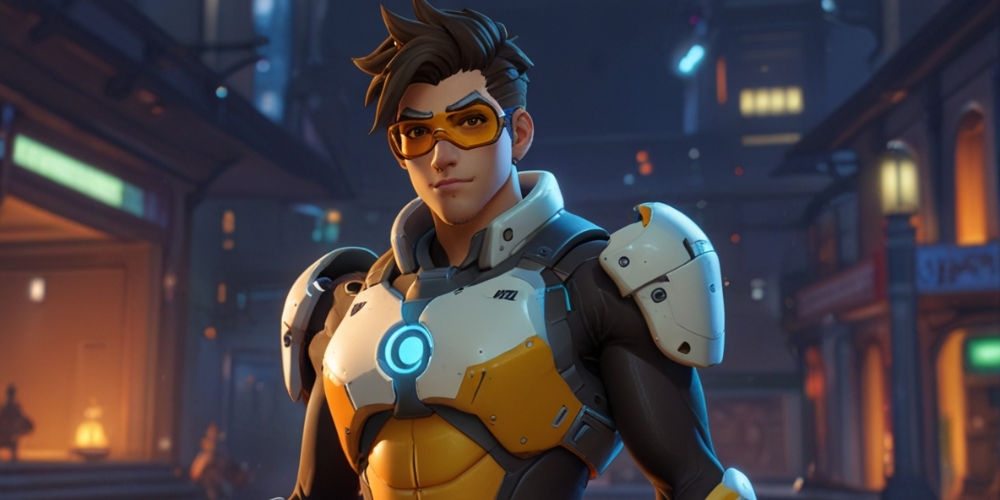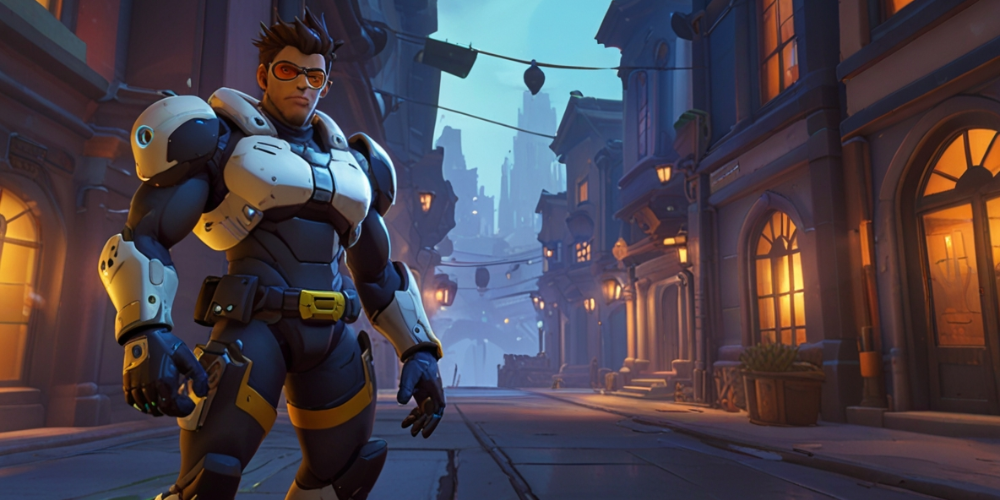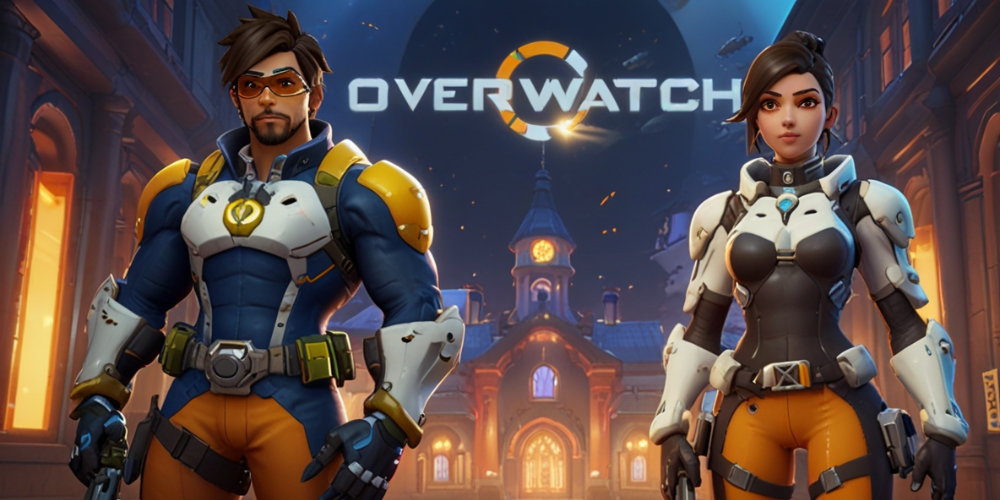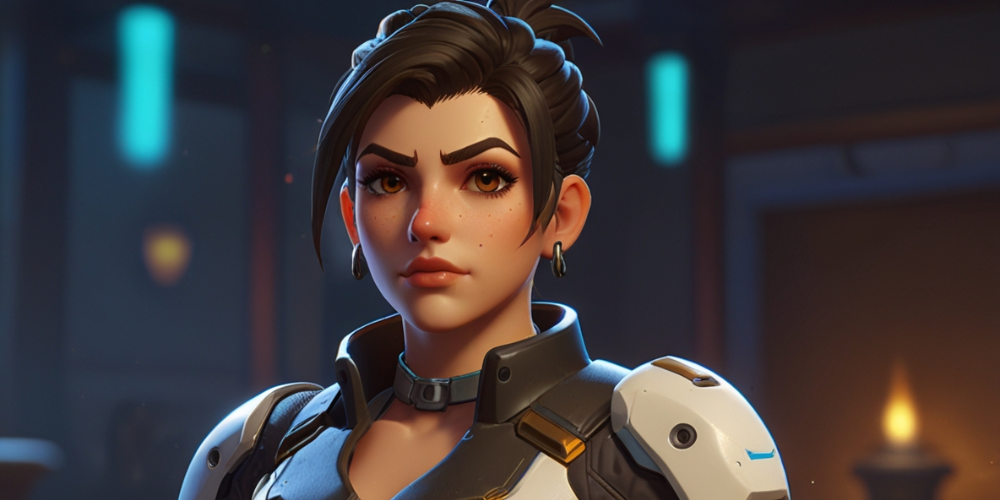Overwatch - Team Composition and Hero Diversity
- Aug 04, 2024
- 867

When I first jumped into the chaotic world of Overwatch, one of the hardest lessons I had to learn was the importance of team composition. Unlike many first-person shooters where individual skill might carry the day, Overwatch places a strong emphasis on working together as a cohesive unit. The blend of heroes available offers limitless potential for creative combinations and strategies, but it also presents significant challenges. Let's dive into my journey with team composition and hero diversity in this vibrant game.
Understanding Team Roles
Before I could grasp the intricacies of team composition, I had to familiarize myself with the three core roles: Tank, Damage, and Support. Each role has a specific function that is crucial for success in any match. Tanks are the frontline warriors, absorbing damage and creating space. Damage heroes focus on eliminating opponents and dealing damage, while Support heroes keep everyone alive with healing and utility abilities. Understanding these roles was the first step in grasping how to build an effective team.
The Importance of Balance
As I started to play ranked matches, I quickly realized that a balanced team composition is essential. A team overloaded with damage heroes might shred through opponents but will often lack the resilience to withstand an attack. Conversely, a team stacked with tanks could become immovable but may struggle to deal any significant damage. I learned that a balance of these three roles creates a synergy that can lead to victory.

Diversity of Heroes
What makes Overwatch unique is the diversity of heroes available. Each hero brings their own set of abilities, playstyle, and character lore. I realized that this diversity isn't just flavor – it actively shapes how a team functions in real-time. For example, using a hero like Reinhardt can set up fantastic plays with his shield, but pairing him with heroes such as Zarya can take that synergy to another level. It's this combination that keeps every match fresh and varied.
The Meta Game
As I delved deeper into Overwatch, I was introduced to the concept of the meta. The meta isn't static; it evolves with patches, hero balance changes, and the ever-growing roster of heroes. I became more aware of the combinations yielding the best results at any given time. However, while it's essential to understand the meta, I learned not to be a slave to it. Sometimes, unconventional picks can defy expectations and turn the tide in a match.
Countering Strategies
Understanding team composition also involves knowledge of countering opponents. Early on, I often found myself struggling against specific hero pairings. A well-coordinated team of Pharah and Mercy could decimate our ranks if we were unprepared. This realization pushed me to expand my hero pool to include counters, like hitting the skies with hitscans like Soldier: 76 or Ashe. Adapting and countering is as vital as knowing your own team's strengths.

The Importance of Communication
Effective communication became one of my most valuable tools. I learned that coordinating picks and strategies often led to better results. When I would enter a match, I'd take a moment to gauge our hero picks early on. If I noticed that we had no support heroes, I’d be more inclined to switch to someone like Baptiste or Lucio, even if it wasn't my primary choice. I also learned to share my objective – whether it was to flank or if I was going to dive in with a tank. Communication is the glue that can hold a team together.
Synergy Between Heroes
Once I grasped the fundamental roles and hero kits, the next step was learning about synergy. Pairing heroes isn't just about having a balanced team; it's about finding complementary abilities that enhance one another. I found that picking Zarya alongside a Mei was powerful; Zarya could absorb damage and charge her ultimate while Mei controlled the battlefield with her ice walls. Heroes working off each other is a huge part of what captivates me about Overwatch.
Adaptation During Matches
Another lesson I learned was the importance of adaptation during matches. As a match evolves, the initial team composition might become less effective against the opposing team. I remember a game where my team started with a double shield setup but quickly found our defenses crumbling under pressure from flanking damage dealers. Realizing this, I switched to a flanker like Genji, hoping to disorient their backline while our tanks held the front. Adapting on the fly can often save a losing match.

Map-Specific Strategies
Overwatch's diverse maps play a significant role in deciding hero choices and team compositions. I learned that some heroes shine on particular maps due to terrain or layout. For instance, maps with multiple vertical layers can favor heroes like Widowmaker or Junkrat. Understanding map flow and adapting strategies based on locale has been pivotal in enhancing team performance during skirmishes.
Learning from Mistakes
Another important aspect of Overwatch is that mistakes can often be the best teachers. Early on, I selected heroes based on comfort rather than team needs. I remember a particular match where I insisted on playing Reaper despite our team already having a high-damage hero. My lack of foresight led to our downfall, and it was a painful lesson in prioritizing team needs over personal preference. Every blunder became an opportunity to reflect and grow.
Finding My Main
In my Overwatch journey, I devoted time to find a few heroes that I felt comfortable with and that complemented my playstyle. I experimented with various heroes across all roles before settling on a few. Learning the intricacies of those heroes allowed me to contribute more effectively to my team's overall composition. I found that becoming an exceptional player with a couple of select heroes made me more versatile and effective overall.
The Role of DPS in Team Composition
Although Tanks and Supports provide a solid foundation, I discovered that Damage heroes play a distinctive role that can influence the game's tempo. Throughout my play sessions, I realized how important it was to have a diverse lineup of DPS. Some heroes excel at burst damage while others can whittle down opponents from a distance or at close range. Recognizing when to switch roles within the DPS bracket during a match became one of my key strengths.
Small Team Adjustments
I discovered that even small adjustments in team composition can lead to significant changes in performance. For example, swapping a healer for an offensive hero or incorporating an off-tank can dramatically shift the outcome. I learned to keep an open mind about switching up roles mid-match, acknowledging that even one hero can change the battlefield dynamics.
Analyzing Successful Teams
Watching professional Overwatch matches offered me insights into how high-level team compositions function effectively. Observing how top players synergize their abilities, adapt their strategies, and counter the opposition inspired me to elevate my own gameplay. I took notes on their hero selections and how they adjusted their compositions based on the opposing team's performance. Analyzing successful teams provided a model to replicate and learn from.
Developing my Playstyle through Diversity
Eventually, I began to appreciate the hero diversity in Overwatch not just as a means of team composition, but as a way to develop my unique playstyle. As I explored different heroes, I found skills and strategies that appealed to me personally. I could take the hectic pace of a flanker or the supportive nature of a healer and weave them together into how I approached the game. This melding of styles allowed me to become a more adaptable player.
Emphasizing Team Unity
Beyond the mechanics of team composition, I discovered that the unity of the team matters just as much. Winning games is a fantastic feeling, but building camaraderie with teammates amplifies that joy. Collaborating effectively and cheering each other on enhances the match experience. I learned that at the end of the day, Overwatch is about more than just individual performance; it's about forming a team that works together and shares in the victories and defeats alike.